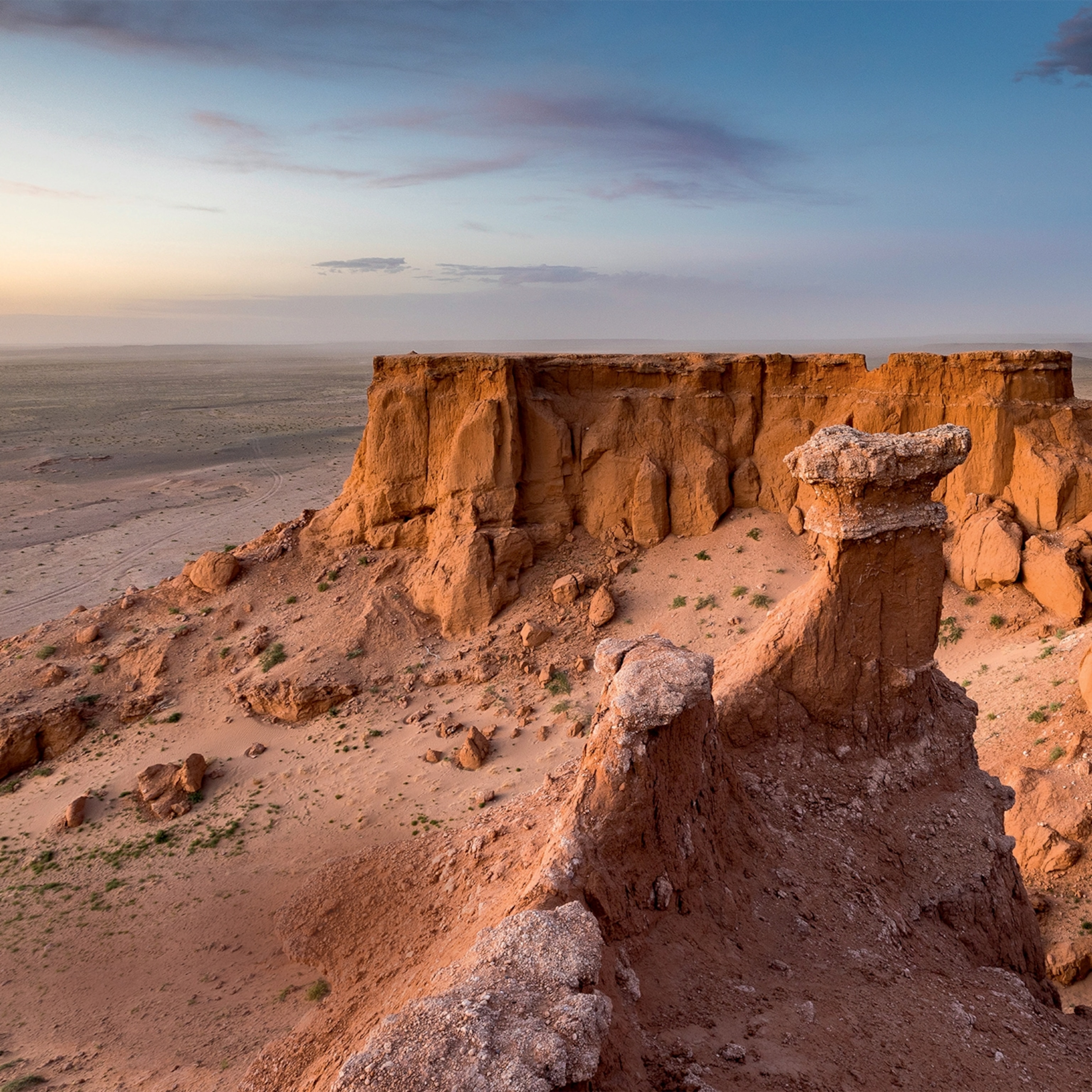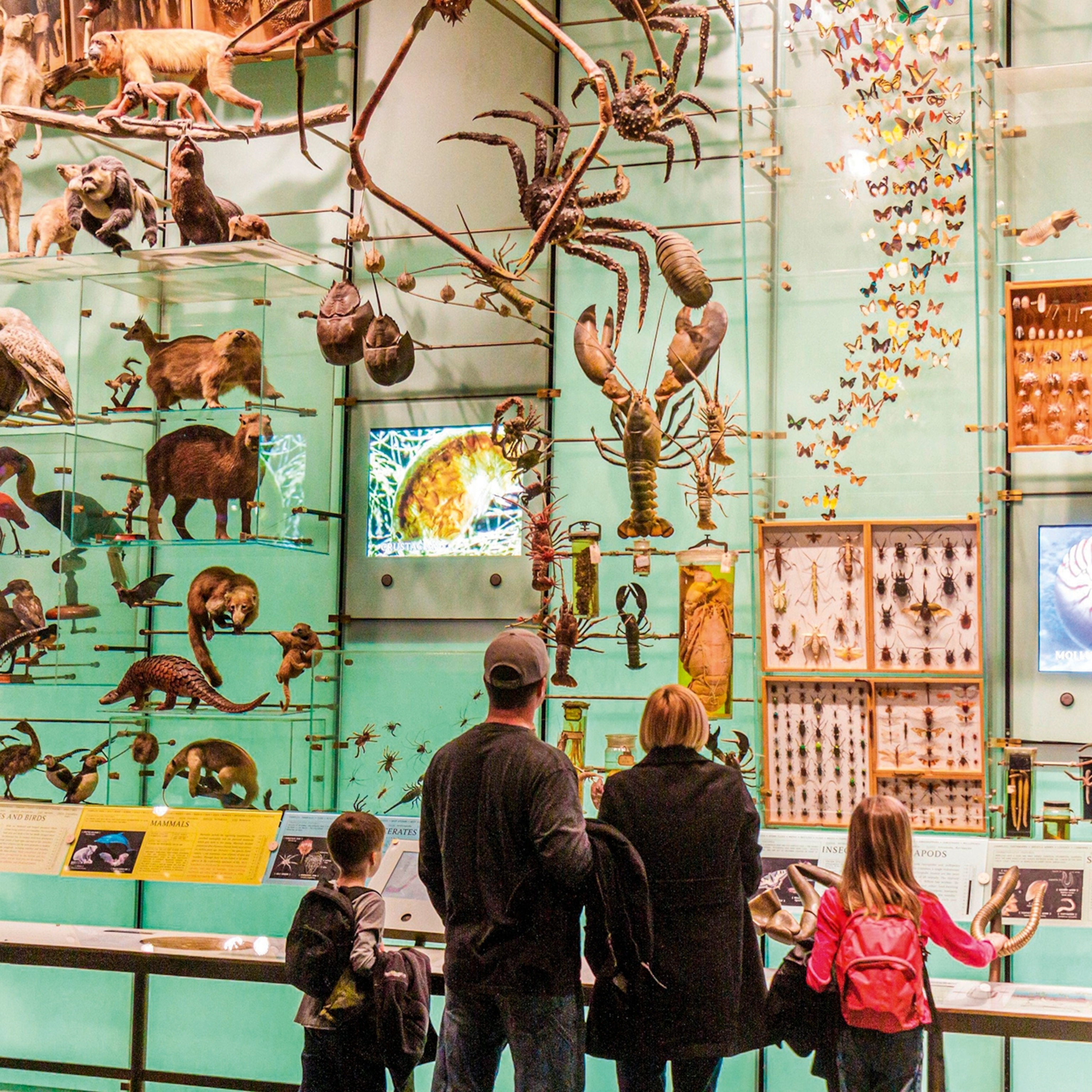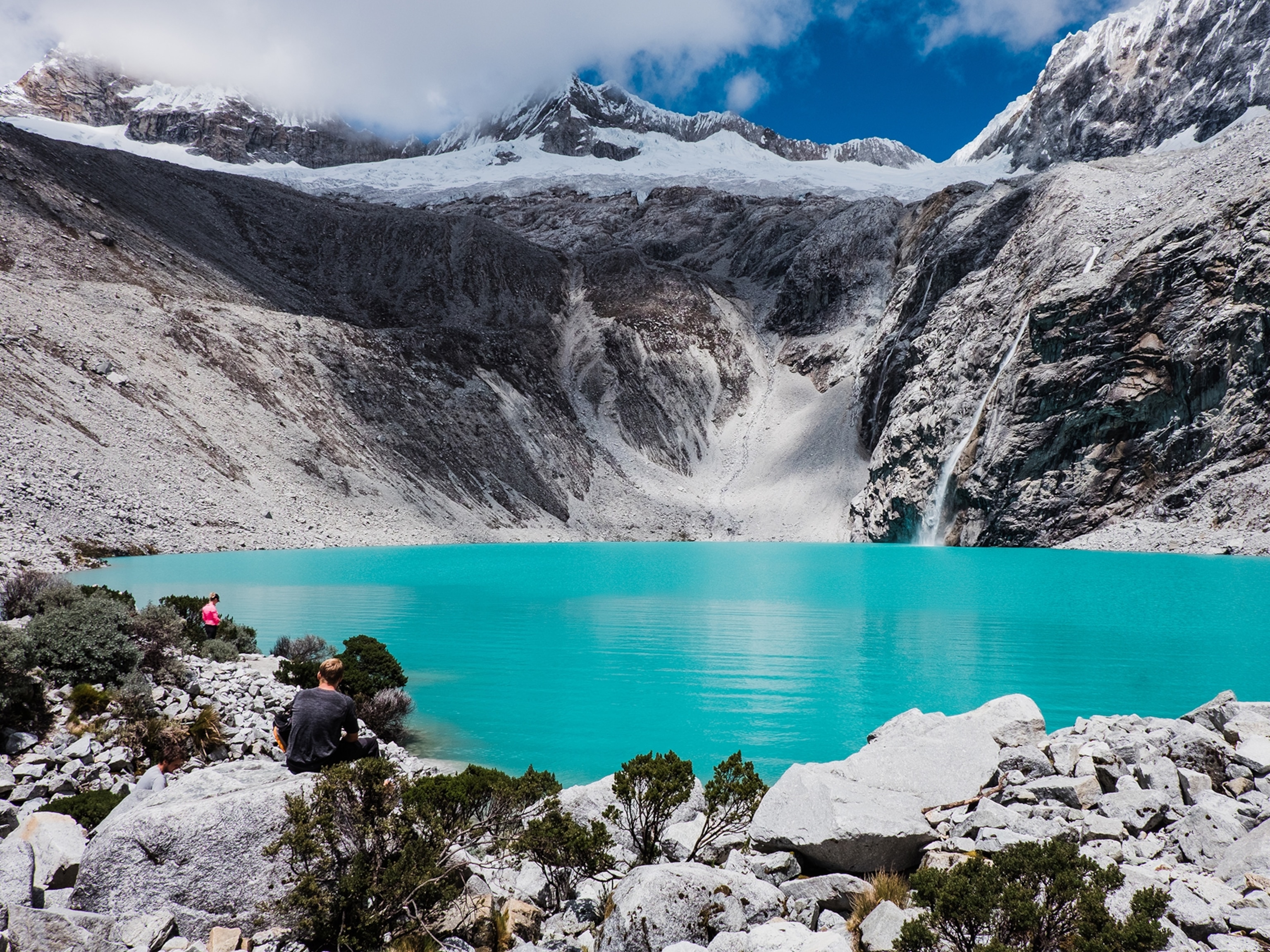
A Master Storyteller
One on One
From desert marathons to mountain treks, he goes where the adrenaline flows.
Like many of you, I have roamed the world vicariously with Boyd Matson for the past 30 years. One of the great adventure journalists of our day, Matson has suffered dehydration, broken bones, snakebite, and countless other misfortunes in his pursuit of stories—and usually comes up laughing. Most people know him as the longtime host of the acclaimed series National Geographic Explorer. Before that, he worked on some of the country's top news shows, including ABC's World News Now and The Today Show on NBC. Currently, he hosts Wild Chronicles on PBS and the radio program National Geographic Weekend. And lucky for us, for the past two years he's written "Unbound," his highly popular column for Traveler. I managed to sit him down for a few minutes before he jetted off to his next adventure.
What is it about travel that you love? I've been addicted to travel since I was a kid. The books that interested me when I was young were about explorers and other parts of the world. I thought I would like to go and find out more about those places. I read a book about Sun Yat-sen in China and a book about a missionary's experience in New Guinea. I thought, I have to get to China and New Guinea to see what they're like. I wanted to see them firsthand. I still read other people's travel writings and say, "Well, I have to get there and see it for myself."
How much time do you spend on the road in a typical year? Probably a third of the time. I try not to keep an accurate count because then I would have to confess to my wife. When I worked for NBC News years ago, for The Today Show, I traveled half the time or more. I was single then. I was the only correspondent who would have laundry bills the first day on the road, because I took all my dirty laundry with me. I knew by traveling I would get my laundry done and have a clean bed at night and a decent meal, something I didn't get at home.
We think of you as an explorer, but what about travel here at home? I traveled a lot as a kid in the United States, going on driving vacations with my parents. I still like driving the back roads of America, seeing the rural places. When I could drive myself, I would stop at all the places that my parents wouldn't let me stop because they were always in a hurry to get someplace. I wanted the journey; they wanted the destination. I did driving trips for The Today Show and briefly at National Geographic. I took my '63 red Cadillac convertible with tail fins and drove around the country doing stories.
What has traveling with your own kids taught you about travel? I enjoy taking my kids to someplace that was a special moment for me, because I want to look at it again through their eyes. I did this at Machu Picchu. As we got to the place where they could just begin to see the ruins, I had them close their eyes. Then I led them to a spot with a full view of the ruins and had them open their eyes on the count of three. It's that moment of shock that you like to see. Traveling with kids also helps you open your eyes to look at things in a different way. When they were younger, I gave one of my kids a still camera and one a video camera. It was fun to compare their shots to my own and see how they saw things in a slightly different way. It made me think, "I should have seen that."
Do you think the next generation is going to travel differently? Oh sure. The big difference is technology. It's made travel seem less strange and intimidating. There's far more communication. I remember trying to call home from the Amazon years ago. We got to this small clearing where a few people lived, and there was a hut with a radio that linked into a phone line somewhere. When I called home, I was given a lecture about several problems that had happened. I finally said, "You realize that this is going out over a radio signal that everyone in the Amazon can now hear." Back then when you traveled, you might not hear from home for two weeks, or if you needed to get money it was not easy to do. Today, there's more security in travel. There's also more opportunity and willingness for young people to travel. In high school they have study abroad and exchange programs, and in college lots of kids now do at least a semester abroad.
Do you think we can avoid doing long-term damage to some of the great travel icons? I'm optimistic that people increasingly are aware that we have to do something, and I see small changes. Unfortunately, I also see places with irreparable damages. I was hiking around the Valley of the Kings and the Valley of the Queens near Luxor, Egypt, and I saw a ravine filled with trash. That was where they were dumping the tourist garbage. Conservationist Mike Fay and I were on a beach in Gabon that was littered with trash. Mike would pick it up and read where it was from. It came out of the river system from two countries away. People threw it in the river, and it disappeared, so they thought it was not a problem. Well, hey, it's washing up on somebody's beach.
If you could pick three people to travel with, living or dead, who would they be? First would be polar explorer Ernest Shackleton, because of his leadership skills and ability to keep spirits up. I'm confident he would find a way to get us out of any scrape alive, and he'd also have some great stories to tell. I'd also pick conservation biologist George Schaller. He's done pioneering work in field biology on so many different animal species that I would like to look at wildlife through his eyes. Finally I'd go with Bonnie Raitt. I think mixed gender expeditions are better, and there's nothing like some good music, especially the blues, at the end of the day to make you forget about your troubles. Also, music is a good way to connect with and communicate with people of other cultures.
- National Geographic Expeditions
What is your most memorable travel experience? One of the greatest experiences of my life was the trip to Khumbu Icefall on Mount Everest. At base camp, I met Babu Chiri, who at that time was the most famous climbing Sherpa. He had the speed record from base camp to summit—16 hours and 56 minutes. Unfortunately, while we were there, Babu Chiri stepped into a crevasse at Camp II and was killed. I remember thinking as I stood in the icefall on a beautiful sunny day that it looked like Superman's crystal palace, that this was the most wonderful spot I'd ever been. And then the next day, the best-known Sherpa climber in the world was killed on this same mountain. It shows that while travel is a lot of fun, there are risks involved sometimes. You have to be careful but enjoy it while you're there.
What is your travel philosophy? I want to go to new places in a way that gives me a better experience, not to go as an observer but as a participant. That just happened in Fez, Morocco, where this kid came up to me in the old market wanting to be my guide. I followed along to see what would happen. He was of Berber descent, and he took me to his house, which had four stories. He said, "This is where the Berbers lived in this old market." He introduced me to his sister and his mother, who was in the kitchen baking bread. She gave me some bread and made tea for me. The boy wanted me to come back and have dinner. He said, "We have an extra bedroom. You want to come and stay here?" It just proved that if you don't take a few chances, you really never get to enjoy the trip. So I guess that is my philosophy of travel: Get off the tour bus.
Keith Bellows is the editor of Traveler.







